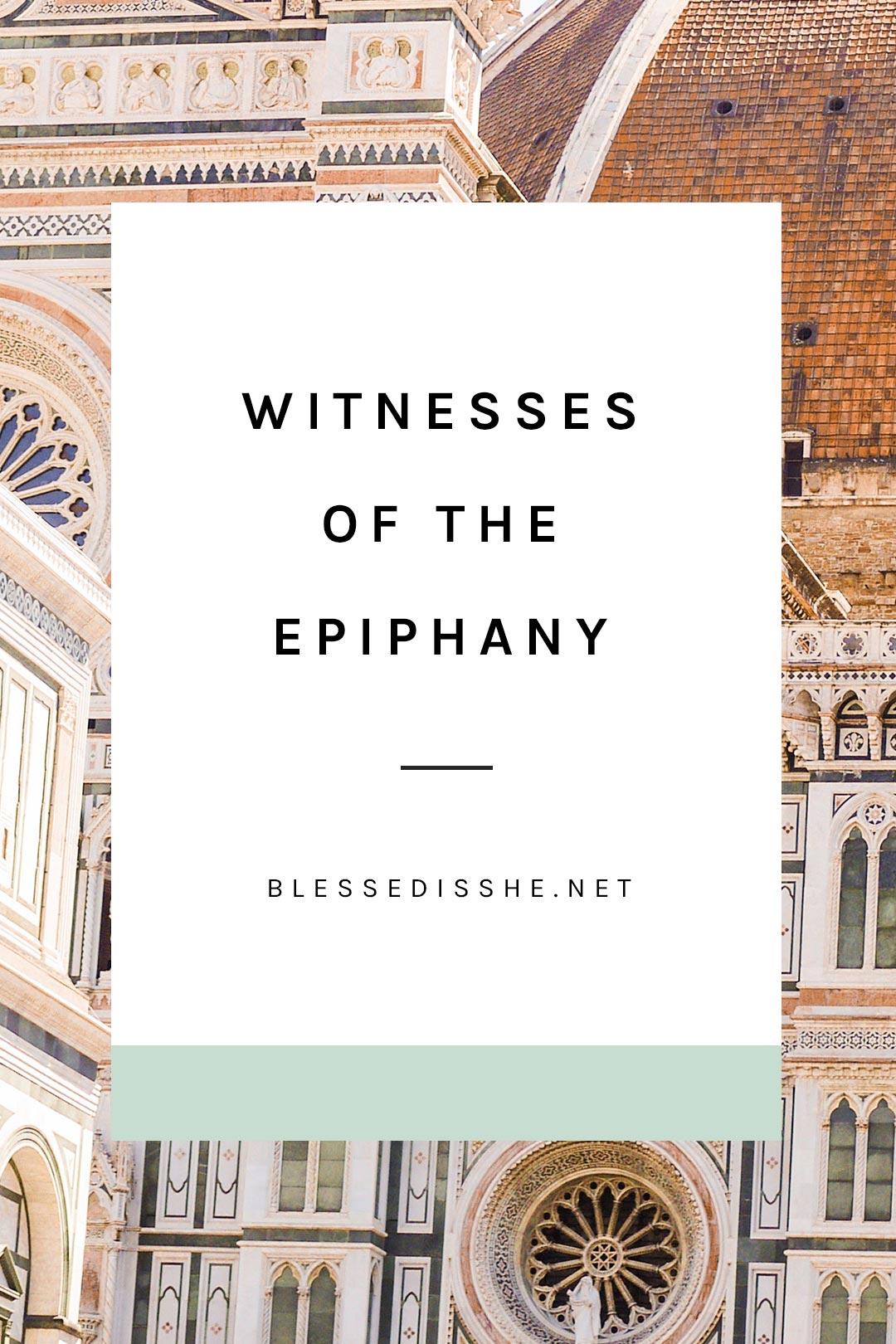
Did you know that Catholics officially celebrate Christmas through the beginning of January? The feast day which marks the end of this season is the Epiphany, which takes place on January 6. In fact, the early Christians celebrated Epiphany long before the celebration of Christmas was formalized on December 25 in the fourth century.
The History of Epiphany
Epiphany comes from the Greek word epiphaneia which means “appearance” or “manifestation.” Historically, this feast day celebrated not only the revelation to the Magi, but also Jesus’ baptism and the miracle at the wedding at Cana. The Catechism of the Catholic Church tells us that:
The Epiphany is the manifestation of Jesus as Messiah of Israel, Son of God and Savior of the world. The great feast of Epiphany celebrates the adoration of Jesus by the wise men (magi) from the East, together with the baptism in the Jordan and the wedding feast at Cana in Galilee. -CCC 528
Insights from Pope Benedict XVI
In one of his homilies on the Solemnity of the Epiphany of Our Lord, Pope Benedict XVI started out by saying:
Epiphany, the ‘manifestation’ of Our Lord Jesus Christ, is a many facetted mystery...The Eastern tradition...gives priority to the moment of Jesus’ Baptism in the River Jordan when he manifested himself as the Only-Begotten Son...John’s Gospel, however, also invites us to consider as an ‘epiphany’ the Wedding at Cana, during which, by changing the water into wine, Jesus ‘manifested his glory; and his disciples believed in him’ (Jn 2:11).
At the wedding at Cana, Mary believed that Jesus could multiply the wine. This points to the Last Supper when Jesus turns the wine into His most Precious Blood.
The Gifts Given to Jesus
Matthew 2:10-11 reads that the Magi “were overjoyed at seeing the star, and on entering the house they saw the child with Mary his mother. They prostrated themselves and did him homage. Then they opened their treasures and offered him gifts of gold, frankincense, and myrrh.”
Gold was the customary gift for royalty. The giving of this gift shows that the magi understood that Jesus was King of all.
In Old Testament times, frankincense was considered to be very precious. It was used both medicinally and in the worship of God, as it was used to make incense.
Though always mentioned last, at the time of Jesus’ birth, myrrh was prized more than gold. It was used to relieve pain. It was also as an embalming agent, symbolizing suffering, death, and life after death. This gift was prophetic for the great suffering and death that Jesus would endure.
Cultural Celebrations
In various countries like Italy, the nations of Latin America, and Spain, some families choose to give their children gifts on Epiphany rather than Christmas.
You may also recognize the Polish tradition of using blessed chalk to mark the main entryway to your home. I’ve been in homes where either on January 1st or the Feast of the Epiphany, someone will write with chalk the first two numbers of the year followed by either “K+M+B” or “C+M+B” and then the last two numbers of the year. The CMB combination stands for the latin phrase “Christus mansionem benedicat” meaning “Christ blesses this house.” The KMB version is after the three magi, Kaspar or (Caspar), Melchior, and Balthazar.
Others celebrate Epiphany with “Majorcan Roscon” or a King’s Cake. Every year, where I work, there is an office which buys a beautiful sweet bread to celebrate Dia de los Reyes Magos, or Three Kings Day. This colorfully green and red pastry has mini plastic Baby Jesus baked into the cake. In Mexican culture, the person who finds the Baby Jesus is responsible for hosting a dinner or providing tamales and atole to their guests. At our office, it just means you have to bring in a snack on February 2, the Feast of the Presentation of the Lord. In the Christian world, this feast traditionally marks the last day of Christmas.
What This Feast Calls Us To
...what should we say, dear brothers and sisters...who are every day witnesses and ministers of the ‘epiphany’ of Jesus Christ in the Holy Eucharist? The Church celebrates all the mysteries of the Lord in this most holy and most humble Sacrament in which he both reveals and conceals his glory. ‘Adoro te devote, latens Deitas’ in adoration, thus we pray. -Pope Benedict XVI
Benedict continues to talk about how Dante describes God as “the Love which moves the sun and the other stars.” The galaxy and the universe are governed by God, not by an unknown force. In this we can rejoice. We can rejoice because we live in a creation which is held in the protection of God our Father, a God of Love.
Let us, with the magi, be “overjoyed” by what the star represents. Let's soak in the mystery and never fail to give God the adoration that is His due. Also consider what you can do—yourself or in your family—to celebrate Epiphany. Let us believe with the same confidence that Mary had when she entrusted Jesus with her request at the Wedding at Cana.
Do you have any special traditions surrounding the Feast of the Epiphany?































